
 Flash News
Flash News
Fight in Durrës cemetery, father and son injured
A woman dies in an accident in Tapiza, the 33-year-old driver is in custody
Last night she escaped the assassination attempt/ Who is Katerina Beqo, the woman who was in the car with her little son when her husband was executed (Event)
Suspected of being used in the murder of Gjovalin Prendit, a vehicle is found burned in Fushë Gjormë
"Albania couldn't hold on", Lara Colturi chooses Italy for her career
Risk map: Counties at risk from voter buyout and influence on May 11
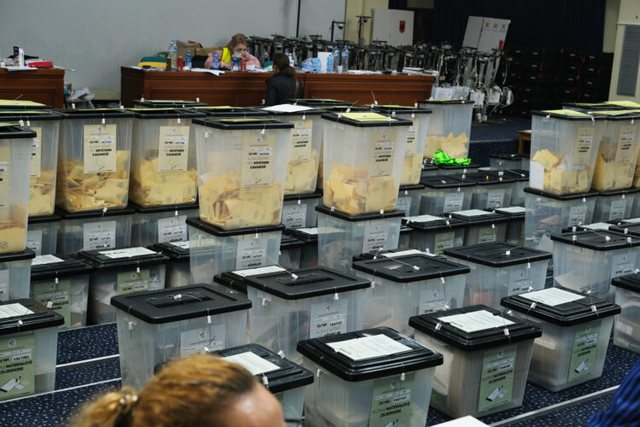
A study by the Institute for Political Studies suggests that the districts of Elbasan, Durrës, Dibra, Lezha or Fier have a high risk of voter influence from factors related to corruption, organized crime and clientelistic ties in the May 11 elections.
The Institute for Political Studies published on Thursday the "2025 Electoral Risk Map: Hotspots and Informal Influences", a study that appeals to the risk of vote buying and voter influence in clientelistic forms in some districts, while the Diaspora vote remains unmonitored by these influences.
The study suggests that the parliamentary elections of May 11, 2025 also pose a high risk in some areas, just like the two previous parliamentary elections of 2017 and 2021.
"The municipalities of Elbasan and Durrës have the highest risk coefficient (87%), due to the combination of many elements there," the study states, where the criteria for assessing the risk are; "the existence of corruption at high levels, influential criminal groups, strong informal connections, the level of vote trafficking and the role of economically powerful individuals, as well as the tradition in the last 2-3 parliamentary and local elections."
For the same reasons, the municipalities of Dibër, Lezhë, Kurbin, Shkodër and Fier are also listed.
"In some of these municipalities, there are areas where votes have been trafficked/diverted for years by individuals or informal groups with great political and financial influence," the report suggests.
Himara is also considered a high-risk area, but with other specifics, mainly related to the recent local elections.
"While small municipalities such as Shijak, Bulqiza, Kukës or Mati have in common the influence of informal or criminal groups, as well as influence peddling," the report specifies.
Meanwhile, the areas with the lowest electoral risk are considered mainly traditional areas with the same specifications as the 2015-2025 elections, such as; Përmeti, Maliqi, Konispoli, Finiqi, Dimali, Gramshi, Belshi, etc. These areas, according to the experts who drafted the report, do not have organized crime, do not have powerful political and economic individuals behind them, do not have great electoral weight and constitute homogeneous local units in composition and tradition.
The electoral risk map is based on indicators related to the tradition of elections in municipalities and electoral zones, the qualities of candidates for deputies, the role of criminal groups in the areas, the role of "strong" businessmen and individuals with influence in the area, the role of informal financing, clientelistic voting, vote trafficking, pre-electoral tensions, rivalry between parties and chances for rotation, etc.
ISP also sees a risk of clientelistic influences on citizens' votes in the campaign conducted by candidates on open lists. This technical change in the list, according to the study, has created two parallel campaigns: one between parties with a proportional system and one within the candidates of the same party with a majoritarian system.
"The need for mandates or personal survival (election/re-election) has massively restored informal connections (criminal connections, informal financing, the influence of individuals who control areas, the influence of oligarchs, etc.), "the report notes.
One issue raised by the study is the inability to monitor the Diaspora vote for these influences, while this is the first time that the practice of voting from abroad will be implemented in elections. According to the ISP, the risk of the diaspora vote remains high, especially in those parts of it controlled through a clientelistic or patronage system./BIRN
Latest news


Zelensky accuses US envoy Witkoff of spreading Russian narratives
2025-04-18 18:08:33



Fight in Durrës cemetery, father and son injured
2025-04-18 16:58:31
Israeli strikes kill at least 17 people in Gaza
2025-04-18 16:29:04
A woman dies in an accident in Tapiza, the 33-year-old driver is in custody
2025-04-18 16:26:04


EU: It is essential for Kosovo to quickly form a new government
2025-04-18 15:53:40
Two Albanians sentenced to 18 years in prison for raping English woman
2025-04-18 15:44:34

How to prepare your skin for a perfect tan this summer?
2025-04-18 15:16:02
Dritan Rexhepi refuses to testify about the kidnapping of Jan Prenga
2025-04-18 14:59:18

Abuse of "SASPAC" funds/ GJKKO postpones hearing against Ilir Beqaj
2025-04-18 14:38:26
Meloni in Washington, Trump: We will have an agreement with the EU
2025-04-18 14:22:16
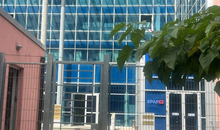



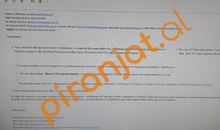
Piranha Investigation/We consumed milk with aflatoxin
2025-04-18 13:06:16
Letter to first-time voters!
2025-04-18 12:56:06


Berisha: A judge ordered SKAP to investigate Rama for the villa in Surrel
2025-04-18 12:20:51


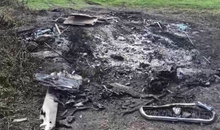


BKH agents attacked, Fier court leaves Agron Kapllanaj's grandchildren in prison
2025-04-18 11:22:14
"Albania couldn't hold on", Lara Colturi chooses Italy for her career
2025-04-18 11:10:50
Rubio: We will withdraw from Russia-Ukraine peace deal if there is no progress
2025-04-18 10:58:18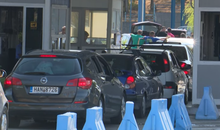


Beyond the horizon, life goes on! Black Friday and Easter
2025-04-18 10:31:31

VIDEO/ Diaspora vote, Albanian shows the middle finger to the SP
2025-04-18 10:10:47
Ajola Xoxa appears before SPAK, implements the "compulsory appearance" measure
2025-04-18 09:58:34


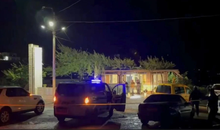
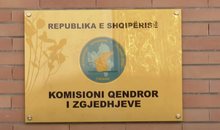

Foreign exchange, April 18, 2025
2025-04-18 08:58:05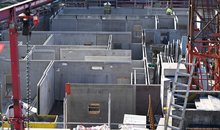
Germany needs construction workers
2025-04-18 08:55:05


Horoscope, what do the stars have in store for you today?
2025-04-18 08:23:30
Temperatures reach up to 24 degrees, weather forecast
2025-04-18 08:08:21
Posta e mëngjesit/ Me 2 rreshta: Çfarë pati rëndësi dje në Shqipëri
2025-04-18 07:52:20

Assassination in Tirana, police react: 4 injured in Trauma, two of them minors
2025-04-17 22:34:30
Gunfire in Tirana, 4 people injured
2025-04-17 22:16:15

Tirana Incinerator, Lala: Officials were punished as if they stole a chicken
2025-04-17 21:50:29
Wealth Zodiac: Who has the money magnet?
2025-04-17 21:47:18





Assassinations in Lezha Plain, Roan Brahimi's father is killed
2025-04-17 20:29:59
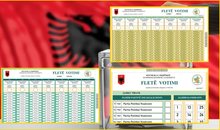
The first 600 ballots from the diaspora arrive in Albania
2025-04-17 19:52:59

Farmers who make BÉ-eee and farmers of the EU!
2025-04-17 19:30:47

Tobacco: 0% tax for freelancers, PD with a clear plan for the middle class
2025-04-17 19:07:05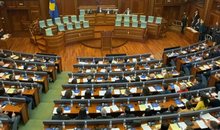
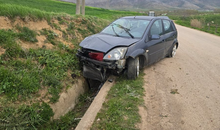
Car hits 9-year-old child in Pogradec
2025-04-17 18:42:15
Alizoti accuses SPAK: It has failed in supervising the elections
2025-04-17 18:31:42
Mental health alert: Work without limits, mind under pressure
2025-04-17 18:09:04
Two vehicles collide, 29-year-old dies in Tirana
2025-04-17 18:01:45
Rama from Dibra: Half of Albanian men are syrians, the rest vote for the DP!
2025-04-17 17:55:58
Top Ukrainian, European and American leaders meet in Paris
2025-04-17 17:45:35
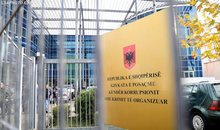
"Metamorphosis", the Court takes time on the way to judge the defendants
2025-04-17 17:24:50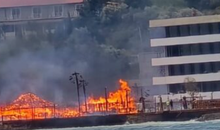

Trump's tariffs could bring Putin closer to peace
2025-04-17 17:06:27
Accident with 3 injured on the Kukes-Krume axis, 27-year-old arrested
2025-04-17 16:41:24
The fires that are burning Albania
2025-04-17 16:36:38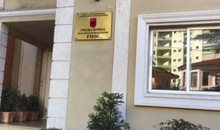

The husband of Rama's former minister in Kosovo is arrested again
2025-04-17 16:14:07
This is the country with the highest road accident death rate in the EU
2025-04-17 16:00:37
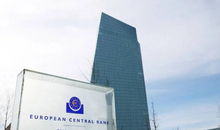
ECB cuts rates to 2.25% amid Trump trade war
2025-04-17 15:38:26

They hit the wife and mother, two arrested in Lezha for domestic violence
2025-04-17 15:13:15

Who is the new Prime Minister of Serbia, Gjuro Macut?
2025-04-17 14:43:03
Court hearing on 'Sterilization' case postponed
2025-04-17 14:40:04
Knife injury in Milot, caused by wrong overtaking
2025-04-17 14:33:42
William Levy released from prison
2025-04-17 14:16:25
Këlliçi: Rama uses sexist and offensive language towards women and girls
2025-04-17 14:05:30

